Families
Youth and adolescents with high body weight are vulnerable to weight bias and weight stigma. Most often, weight stigma in youth is experienced as teasing, bullying, and victimization. Weight-based victimization can be take different forms, such as verbal comments (e.g., name-calling, derogatory comments, and teasing), physical aggression (e.g., being pushed, shoved, kicked), cyber-bullying (e.g., bullying on social media platforms), relational victimization (e.g., being the target of rumors) or social exclusion (e.g., being avoided, ignored, and excluded by others).
Weight stigma negatively impacts emotional wellbeing and physical health. Youth who are teased or bullied about their weight have an increased risk of psychological distress (e.g., depressive symptoms, anxiety, low self-esteem, poor body image, and substance use). Weight-based teasing and bullying can also contribute to unhealthy eating behaviors (e.g., disordered eating behaviors and unhealthy weight control behaviors), reduced physical activity, and increased weight gain over time. This can create a harmful cycle, as increased weight gain can make youth more vulnerable to experiences of teasing and bullying.
Family members can sometimes contribute to the weight stigma that youth experience. Youth with higher body weight report experiencing weight-based teasing from their parents and other family members, and these experiences can have harmful and lasting health consequences. Most parents talk to their child about weight, but sometimes this communication can make youth feel blamed, judged, and shamed. When parents make critical comments about their child’s body weight or body size, pressure their child to lose weight, or make comments about their physical appearance, this can lead to youth to feel emotional distress and engage in disordered eating patterns and unhealthy weight control behaviors.
There are number of ways for parents to engage in more supportive and respectful communication about body weight and size. Ideally, it best to keep conversations focused on health and healthy behaviors (rather than body weight) that everyone in the family can engage in. It’s also important for parents to model respectful attitudes and behaviors towards people of all body sizes. For more information, please view the research brief we created with UConn CSCH on this topic and access the resources below for parents and teens.

Resources
For Parents
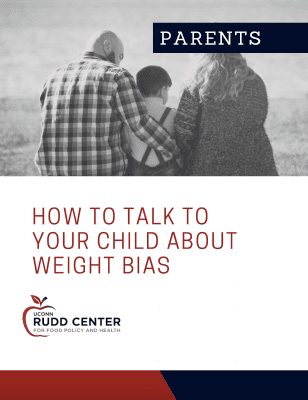 |
 |
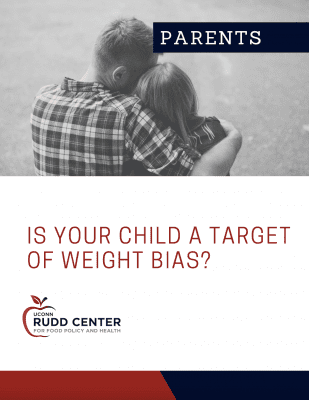 |
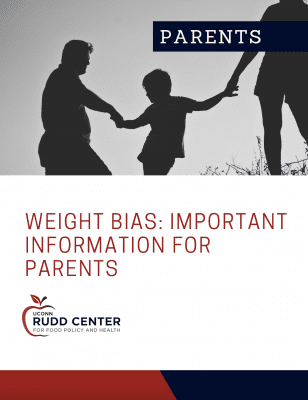 |
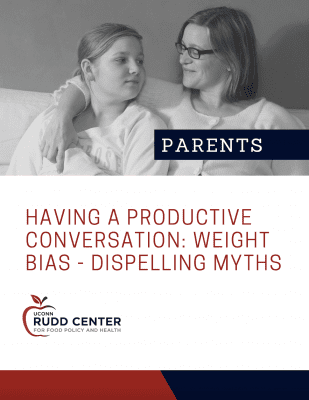 |
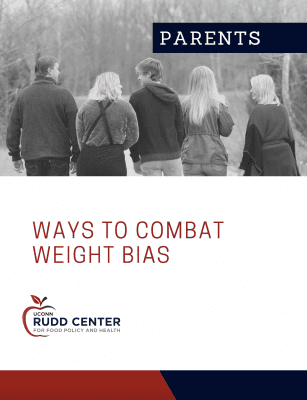 |
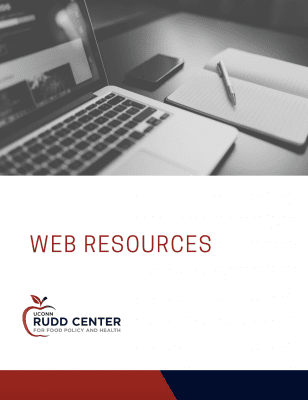 |
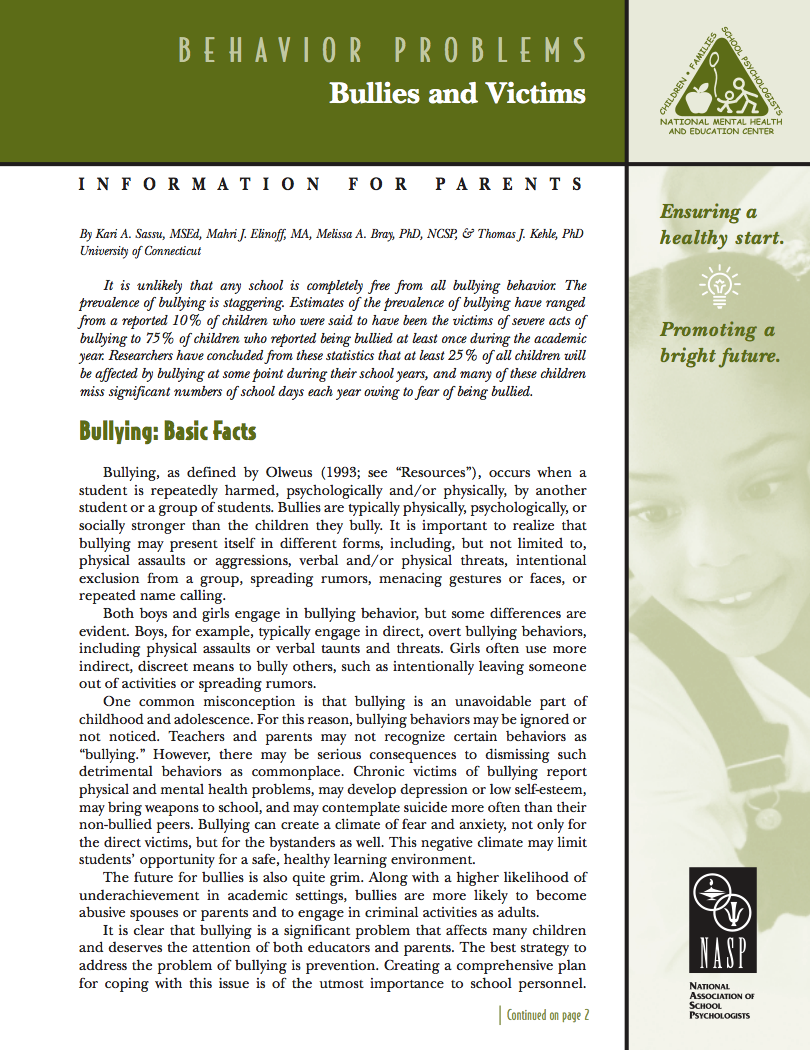 |
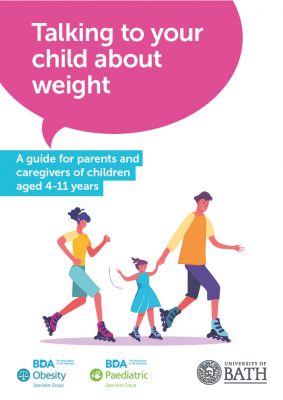 |
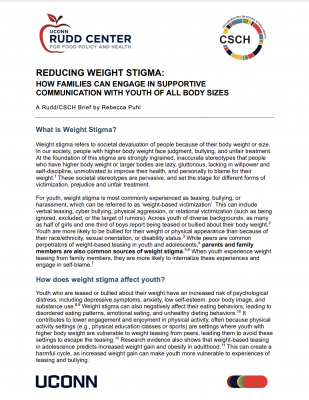 |
Conversations About Children’s Weight: Guidance for Parents
This collection of resources guides parents on ways to have positive conversations about weight-related issues with their children, what words to use when talking about body weight and body image, and how to talk about body size diversity. Bullying Resources:For Youth
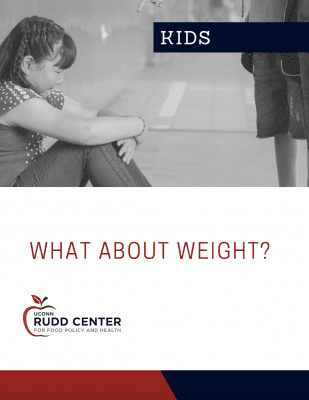 |
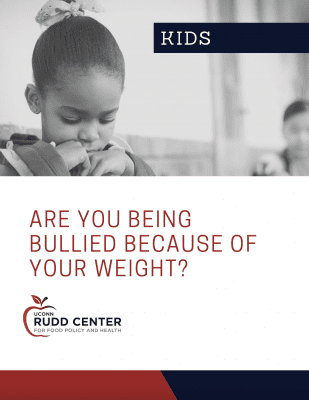 |
 |
For Teenagers
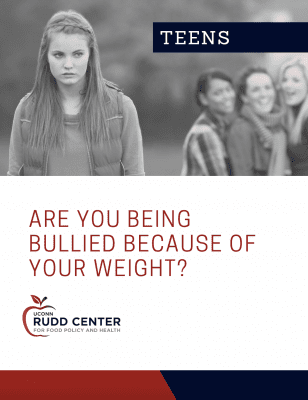 |
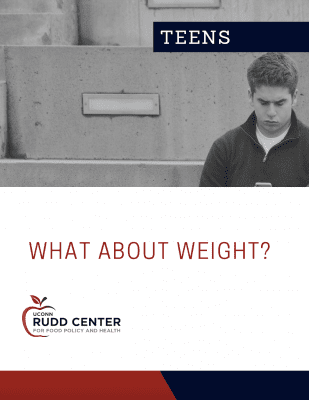 |
 |
Video: Weight Prejudice Myths & Facts
The Rudd Center has created this video to increase youth awareness about weight bias and weight stigma, and to highlight strategies to help combat this rapidly growing problem for overweight adolescents. This video shows the story of Bene, a girl who is teased and victimized about her weight at school.
In response to the daily teasing she confronts, Bene decides to educate her classmates about weight bias by making her own under-cover video to address the weight stigma that overweight youth encounter. Presented by Rebecca Puhl, PhD, Marlene Schwartz, PhD and Karen Dorsey, MD.
Video: Weight Bias at Home & School
The Rudd Center created this video to help parents and teachers understand the severity and impacts of weight bias and weight stigma in school and at home and to present strategies to help combat this rapidly growing problem for overweight teens and pre-adolescents. This video, hosted by celebrity and activist Emme and featuring Rudd Center experts including Dr. Rebecca Puhl and Dr. Kelly Brownell, uses expert commentary and dramatic representation to address the obstacles that overweight and obese youth encounter with weight bias.